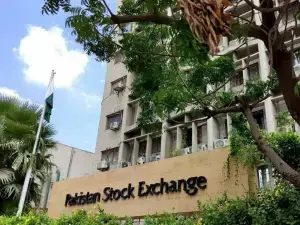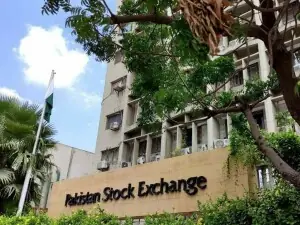Pakistan Muslim League Secretary General and Senate Foreign Relations Committee Chairman Senator Mushahid Hussain Sayed on Saturday said bridging the knowledge deficit was the biggest challenge for Pakistan and added the education must get the priority it deserved.
Addressing a seminar on "Bush visit to Pakistan" organised by Islamabad Citizen Committee he said, "We must focus on the education and prevent an arms race at all costs since that would be detrimental for Pakistan and its people.
Referring to the context of the recent visit of President Bush to South Asia, Senator Mushahid Hussain said the regionalism driven by energy and economy was the motivating factor for political changes, and there was a confluence of three regions, China, South Asia and Central Asia.
He said Pakistan was a pivotal player in that emerging regionalism, given its location and role.
Mushahid said the regional re-alignments were evident and there would be more pronounced in the future including China's role in South Asia as evidenced by its entry into the Saarc and Pakistan's role in Central Asia as demonstrated by its entry into the Shanghai Co-operation Organisation (SCO).
Mushahid Hussain said the new role of India and its emerging American connection should not rattle Pakistan. He said Pakistan had its own importance as a major Muslim country, crucial to the international community, in the context of war on terror and the stability in the region which was the centre of gravity of global politics.
Senator Mushahid Hussain further said India offered three things to the United States; and those three elements were the ingredients of India's importance to Washington policy makers and think tanks. India was willing to play role as counterweight to China, its economy was huge market for American products and technology, and its role as de facto ally of the United States in the campaign against what was termed as "radical Islam."
He further said Pakistan needed to reorder its own priorities according to its national interests, which demanded first and foremost that we set our own house in order focusing on the education and economy, and at the same time, we must politically promote a grand national reconciliation. Pakistan, Mushahid concluding said, badly needed heeling touch that could be provided by reaching out across the political divide to unite the nation on the common goals of bridging the knowledge deficit so that Pakistan was able to play an effective role in the comity of nations.
BR100
16,307
Increased By
236.2 (1.47%)
BR30
51,537
Increased By
1163.4 (2.31%)
KSE100
157,953
Increased By
1775.7 (1.14%)
KSE30
48,199
Increased By
520.5 (1.09%)






















Comments
Comments are closed.